Is your child ready for algebra 1?

Determining if your child is ready for Algebra 1 is an important consideration for both parents and educators.
While there is no set age or grade for when a child should take Algebra 1, there are some key factors that can help determine a student’s readiness for the course.
The Absolute Best Book for the Algebra I
Here are some things to consider:
Math proficiency: Is your child comfortable with basic math concepts such as addition, subtraction, multiplication, and division? Do they have a solid understanding of fractions, decimals, and ratios?
Math proficiency refers to a student’s comfort level and mastery of basic mathematical concepts. When evaluating a child’s readiness for Algebra 1, it is important to consider their proficiency in arithmetic, which includes operations such as addition, subtraction, multiplication, and division. The child should be able to perform these operations accurately and efficiently.
In addition, a solid understanding of fractions, decimals, and ratios is crucial for success in Algebra 1. Fractions are a key component of many algebraic equations and can help students understand how to manipulate and simplify expressions. Decimals and ratios provide students with a way to represent real-world situations mathematically.
Having a strong foundation in these basic mathematical concepts is important for success in Algebra 1, as students will be building upon these skills as they progress through the course. Therefore, it is crucial for students to be comfortable and confident with basic arithmetic before embarking on the study of Algebra 1.
Problem-solving skills: Can your child work through complex mathematical problems, both independently and as part of a team?
Problem-solving skills refer to a student’s ability to work through complex mathematical problems and find solutions. In Algebra 1, students will be presented with a variety of challenging mathematical problems that require critical thinking, creativity, and perseverance to solve.
It is important to evaluate if a child has the problem-solving skills necessary to succeed in Algebra 1. This includes the ability to work through problems independently, as well as the ability to collaborate with others to find solutions.
Working through complex mathematical problems independently helps students develop their own problem-solving strategies and increase their confidence in their abilities. Collaborating with others to find solutions allows students to learn from their peers, hear different perspectives, and gain new insights into mathematical concepts.
Having strong problem-solving skills is essential for success in Algebra 1 and beyond. Therefore, it is important for educators and parents to support the development of these skills in their students and children.
Interest in math: Does your child have an interest in math and a desire to learn more about it?
Interest in math refers to a student’s desire to learn more about mathematical concepts and their enthusiasm for exploring mathematical problems and solutions. When determining if a child is ready for Algebra 1, it is important to consider their level of interest in math.
Having an interest in math can help increase a student’s motivation to learn and can contribute to their overall success in the subject. Students who have an interest in math are more likely to be engaged in class, ask questions, and actively participate in learning activities.
Additionally, students who have a genuine interest in math are more likely to see the relevance of mathematical concepts to real-world situations. This can increase their understanding of mathematical concepts and make the material more meaningful and accessible to them.
Therefore, it is important to consider if a child has an interest in math when determining if they are ready for Algebra 1. If a child does not have a strong interest in math, it may be challenging for them to stay motivated and engaged in the subject, which could negatively impact their success.
Attention to detail: Is your child able to pay close attention to details and follow instructions carefully?
Attention to detail refers to a student’s ability to focus on specific aspects of a task and follow instructions carefully. In Algebra 1, students will be working with mathematical concepts that require close attention to detail and a high degree of accuracy.
For example, algebraic equations can be complex and require students to follow multiple steps in order to arrive at a solution. If a student overlooks a small detail or makes a mistake in one step of the process, it can impact the accuracy of their final solution.
Therefore, it is important to consider a child’s attention to detail when determining if they are ready for Algebra 1. Students who are able to pay close attention to details and follow instructions carefully are more likely to succeed in the subject and avoid common mistakes.
Having strong attention to detail can also help students develop their accuracy in solving mathematical problems, which is an important skill for success in Algebra 1 and beyond. It is crucial for educators and parents to support the development of this skill in their students and children.
Organizational skills: Does your child have good organizational skills, such as being able to keep track of multiple assignments and due dates?
as well as their ability to keep track of multiple assignments and due dates. In Algebra 1, students will be learning a range of mathematical concepts and will likely be given several assignments and projects throughout the course.
Having good organizational skills can help students manage their workload and prioritize tasks, which can contribute to their overall success in Algebra 1. Students who are organized and able to keep track of multiple assignments and due dates are more likely to stay on top of their coursework and avoid falling behind.
Additionally, having strong organizational skills can help students develop independence and self-reliance, which can serve them well not only in their studies but also in their future careers and personal lives.
If your child is performing well in their current math classes and is eager to learn more about Algebra 1, they may be ready for the course. However, it is important to work closely with their teacher to assess their skills and determine their readiness. With the right support and guidance, your child can succeed in Algebra 1 and lay a solid foundation for future math courses.
The Best Books to Ace the Algebra I Test
Related to This Article
More math articles
- 3rd Grade NYSE Math FREE Sample Practice Questions
- ALEKS Math Formulas
- FREE 8th Grade STAAR Math Practice Test
- How long is the SAT Test?
- Dividing Dollars: How to Navigate Money Division in Word Problems
- Top Math Websites for Online Classes
- Math Topics You Need to Learn in Medicine
- FREE 4th Grade MEAP Math Practice Test
- How to Prepare for the FSA Math Test?
- How to Measure Angles with a Protractor
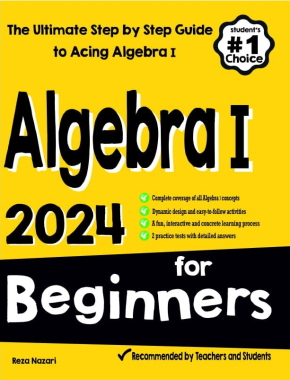
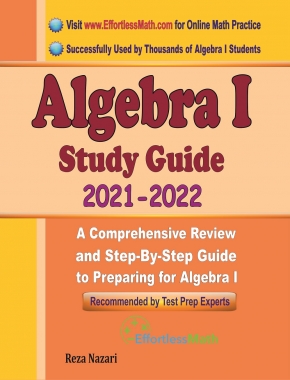
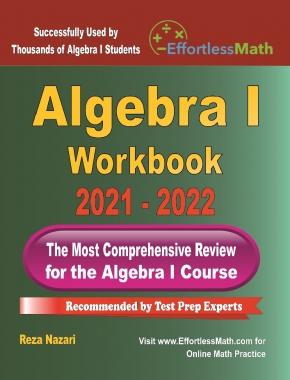
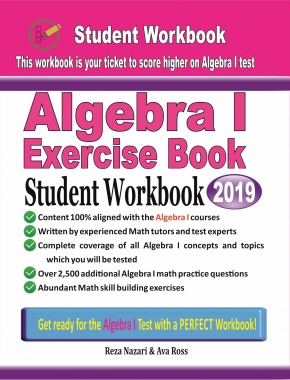
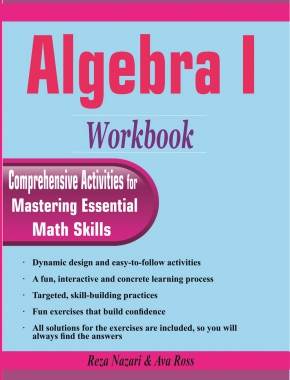
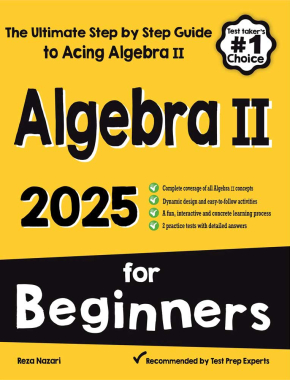
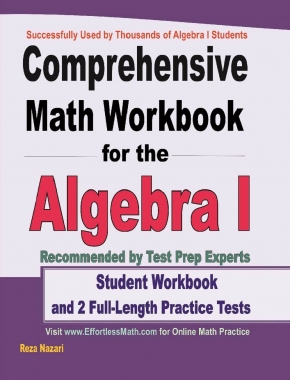
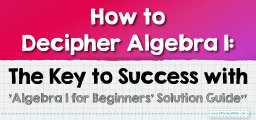



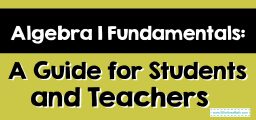


What people say about "Is your child ready for algebra 1? - Effortless Math: We Help Students Learn to LOVE Mathematics"?
No one replied yet.